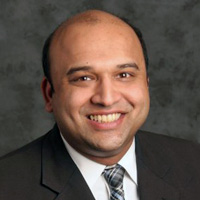6 Ways to Limit Health Care Costs
Living longer is nice, but paying more for health care isn’t. There are, however, a few strategies you can consider to help limit those rising costs.


Profit and prosper with the best of Kiplinger's advice on investing, taxes, retirement, personal finance and much more. Delivered daily. Enter your email in the box and click Sign Me Up.
You are now subscribed
Your newsletter sign-up was successful
Want to add more newsletters?

Delivered daily
Kiplinger Today
Profit and prosper with the best of Kiplinger's advice on investing, taxes, retirement, personal finance and much more delivered daily. Smart money moves start here.

Sent five days a week
Kiplinger A Step Ahead
Get practical help to make better financial decisions in your everyday life, from spending to savings on top deals.

Delivered daily
Kiplinger Closing Bell
Get today's biggest financial and investing headlines delivered to your inbox every day the U.S. stock market is open.

Sent twice a week
Kiplinger Adviser Intel
Financial pros across the country share best practices and fresh tactics to preserve and grow your wealth.

Delivered weekly
Kiplinger Tax Tips
Trim your federal and state tax bills with practical tax-planning and tax-cutting strategies.

Sent twice a week
Kiplinger Retirement Tips
Your twice-a-week guide to planning and enjoying a financially secure and richly rewarding retirement

Sent bimonthly.
Kiplinger Adviser Angle
Insights for advisers, wealth managers and other financial professionals.

Sent twice a week
Kiplinger Investing Weekly
Your twice-a-week roundup of promising stocks, funds, companies and industries you should consider, ones you should avoid, and why.

Sent weekly for six weeks
Kiplinger Invest for Retirement
Your step-by-step six-part series on how to invest for retirement, from devising a successful strategy to exactly which investments to choose.
Health care costs have been rising. Part of the reason could be an increased reliance on emergency care, but a lot of it could be chalked up to an aging population. People have a better chance of getting a disease or ailment the longer that they live. In 1960, newborns in the U.S. could expect to live slightly more than 71 years. Now they can expect to live just under 79 years.
Here are six ways to help you navigate the health care cost maze and potentially save:
1. Coordinate plans
Two-income couples should coordinate their insurance benefits. It might make sense to opt out of one plan and choose the family option on another. On the other hand, maintaining coverage with two providers can make sense, if one fills the gaps of the other. For example, one spouse may have better options for prescriptions, a lower deductible or a wider network of physicians. Then, the other may be able to take the insurance benefit as a lump sum benefit. A growing number of employers are offering a “cash in lieu of” or “pay in lieu of” benefits option, under which the employer offers a taxable “opt out” amount if an employee declines coverage because they’re covered under their spouse’s health plan.
From just $107.88 $24.99 for Kiplinger Personal Finance
Become a smarter, better informed investor. Subscribe from just $107.88 $24.99, plus get up to 4 Special Issues

Sign up for Kiplinger’s Free Newsletters
Profit and prosper with the best of expert advice on investing, taxes, retirement, personal finance and more - straight to your e-mail.
Profit and prosper with the best of expert advice - straight to your e-mail.
2. Check your bills
According to a Consumer Reports survey from 2014, 7% of patients found serious errors in their hospital bills. Those who paid $2,000 or more out of pocket for their care were twice as likely to find errors. These errors can range from typos and wrong codes all the way to forgetting to declare prior authorization for tests, procedures or seeing specialists. If you spot an error, then send a certified letter requesting a corrected bill and a copy of all documentation to your insurer, and contact the billing departments of both the insurance company and the physician’s office.
3. Follow doctor’s orders
The Centers for Disease Control and Prevention (CDC) reported in September 2016 that one in four Medicare participants age 65 or older with blood pressure issues—around 5 million people—do not take their blood pressure medicine as directed. In fact, 20% to 30% of prescriptions for chronic health conditions are never filled, and about half are not taken as prescribed, according to the CDC. Between $100 billion and $300 billion of avoidable health care costs have been attributed to non-adherence in the U.S. annually, representing 3% to 10% of total U.S. health care costs, according to a Johns Hopkins study.
4. Use medical expense deductions
If you incur extraordinary medical expenses in one year, you can deduct from your taxable income the medical costs that exceed 10% of your adjusted gross income (AGI). This can include out-of-pocket insurance premiums and a host of other expenses. See IRS Publication 502 for the complete list, and talk to you accountant about how the deduction may apply to you. For example, if you earned $80,000 in AGI, then your threshold is $8,000. Let’s say that you incurred $10,000 of medical expenses. You could write off $2,000 on your tax return.
5. Know your plan benefits
Take advantage of the free and discounted services offered by your health plan. Many providers subsidize flu shots, gym memberships, nutrition classes, health-risk assessments and other preventive care.
6. Explore a Health Savings Account (HSA)
If you have a high-deductible health insurance plan with lower premiums, then you may wish to explore an HSA. Funds contributed are not taxed when deposited, if made through your employer. And if you're on your own, they are 100% deductible (up to the legal limit). Withdrawals to pay qualified medical expenses, including dental and vision, are never taxed. Interest earnings accumulate tax-deferred, and if used to pay qualified medical expenses, are tax-free. Finally, you can invest the money should you wish to take advantage of potential compound interest.
Did you know? One of the best ways to save on overall medical expenses is to take care of yourself and your home. Bad habits can be costly, in both higher premiums for insurance and long-term expenses. Practice good hygiene, and take steps to avoid accidents at home. Small changes today can lead to better results in the future.
Profit and prosper with the best of Kiplinger's advice on investing, taxes, retirement, personal finance and much more. Delivered daily. Enter your email in the box and click Sign Me Up.

Justin J. Kumar embraces a proactive, systematic investment management approach with a customized, proprietary system to help guide his clients toward their financial goals.
-
 Dow Adds 1,206 Points to Top 50,000: Stock Market Today
Dow Adds 1,206 Points to Top 50,000: Stock Market TodayThe S&P 500 and Nasdaq also had strong finishes to a volatile week, with beaten-down tech stocks outperforming.
-
 Ask the Tax Editor: Federal Income Tax Deductions
Ask the Tax Editor: Federal Income Tax DeductionsAsk the Editor In this week's Ask the Editor Q&A, Joy Taylor answers questions on federal income tax deductions
-
 States With No-Fault Car Insurance Laws (and How No-Fault Car Insurance Works)
States With No-Fault Car Insurance Laws (and How No-Fault Car Insurance Works)A breakdown of the confusing rules around no-fault car insurance in every state where it exists.
-
 For the 2% Club, the Guardrails Approach and the 4% Rule Do Not Work: Here's What Works Instead
For the 2% Club, the Guardrails Approach and the 4% Rule Do Not Work: Here's What Works InsteadFor retirees with a pension, traditional withdrawal rules could be too restrictive. You need a tailored income plan that is much more flexible and realistic.
-
 Retiring Next Year? Now Is the Time to Start Designing What Your Retirement Will Look Like
Retiring Next Year? Now Is the Time to Start Designing What Your Retirement Will Look LikeThis is when you should be shifting your focus from growing your portfolio to designing an income and tax strategy that aligns your resources with your purpose.
-
 I'm a Financial Planner: This Layered Approach for Your Retirement Money Can Help Lower Your Stress
I'm a Financial Planner: This Layered Approach for Your Retirement Money Can Help Lower Your StressTo be confident about retirement, consider building a safety net by dividing assets into distinct layers and establishing a regular review process. Here's how.
-
 The 4 Estate Planning Documents Every High-Net-Worth Family Needs (Not Just a Will)
The 4 Estate Planning Documents Every High-Net-Worth Family Needs (Not Just a Will)The key to successful estate planning for HNW families isn't just drafting these four documents, but ensuring they're current and immediately accessible.
-
 Love and Legacy: What Couples Rarely Talk About (But Should)
Love and Legacy: What Couples Rarely Talk About (But Should)Couples who talk openly about finances, including estate planning, are more likely to head into retirement joyfully. How can you get the conversation going?
-
 How to Get the Fair Value for Your Shares When You Are in the Minority Vote on a Sale of Substantially All Corporate Assets
How to Get the Fair Value for Your Shares When You Are in the Minority Vote on a Sale of Substantially All Corporate AssetsWhen a sale of substantially all corporate assets is approved by majority vote, shareholders on the losing side of the vote should understand their rights.
-
 How to Add a Pet Trust to Your Estate Plan: Don't Leave Your Best Friend to Chance
How to Add a Pet Trust to Your Estate Plan: Don't Leave Your Best Friend to ChanceAdding a pet trust to your estate plan can ensure your pets are properly looked after when you're no longer able to care for them. This is how to go about it.
-
 Want to Avoid Leaving Chaos in Your Wake? Don't Leave Behind an Outdated Estate Plan
Want to Avoid Leaving Chaos in Your Wake? Don't Leave Behind an Outdated Estate PlanAn outdated or incomplete estate plan could cause confusion for those handling your affairs at a difficult time. This guide highlights what to update and when.